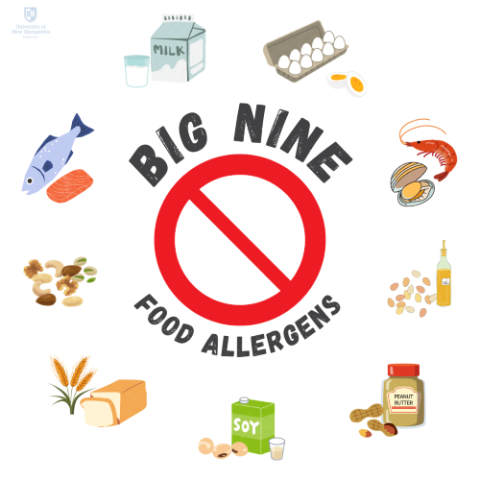Allergen Awareness
A food allergy is a potentially serious response to consuming certain foods or food additives. For those who are sensitive, a reaction can occur within minutes or hours, and symptoms can range from mild to life-threatening. More than 170 foods have been reported to cause allergic reactions, according to Food Allergy Research and Education (FARE), but the majority are caused by the Big Nine. The nine leading causes of food allergies identified in the US are milk, eggs, fish, shellfish, tree nuts, peanuts, wheat, soybeans, and sesame.

Restaurants and other food service establishments are required to post a notice concerning a customer’s obligation to inform the server of their food allergies. The notice is to state “Before placing your order, please inform your server if a person in your party has a food allergy.” The notice is to be displayed by brochure, deli case or menu advisories, label statements, table tents, place cards, posters or other effective written means.
The other concern with allergens is cross-contact. Cross-contact occurs when a food allergen in one food touches another food, transferring the allergen from one food to another. These amounts are often so small that they can’t be seen! To prevent cross-contact in food service establishments, including schools, implement the following practices:
- Follow proper handwashing procedures
- Wear single-use gloves and change appropriately
- Use a clean apron when preparing allergen-free food
- Wash, rinse, and sanitize all utensils, equipment, and food contact surfaces before and after each use
- Isolate allergen-free ingredients in storage and during preparation
- If possible, designate an allergy-free zone in the kitchen
- Prepare allergen-free foods first, wrap and label them (with name, color code, or stickers), and place them on the top storage shelf until service
- Label packaged food with known allergens
- Use separate potholders and oven mitts for allergen-free foods
- Use color coded utensils and equipment, or designate “allergen-free” equipment and utensils
